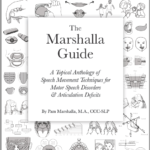Are accommodations taking the place of specialized instruction?

Several years back the powers that be came up with RTI or Response to Intervention. Seriously what a semantically flawed title. RTI was interpreted and implemented differently in every school system based on the administration’s perspective. At first I disliked RTI, I felt it was a program that delayed needed services. RTI also suggested that accommodations could be a cure all for students who struggled.
Then for a while, I thought RTI was really working and it did for some kids. It was very dependent on the understanding/knowledge of the RTI team and willingness to put effort into the process. Teachers were beginning recognize weaknesses/issues and bring up names of at risk students sooner. However, looking back I think the names were brought up because teachers were more concerned that the student in question would not do well on state wide testing without accommodations. (It’s amazing how those students got fast tracked.)
There has to be some sort of a referral process but I’m still not convenience RTI is an effective model. RTI is set up to be a regular education service. Who makes up the RTI team will determine the quality of the accommodations presented. I’m just not convinced that those without a special education background can identify the possible weaknesses and make the proper suggestions for accommodations. Some school systems include a School Psychologist as part of their RTI team which is a big plus moving the process along in a more efficient manner, perhaps even skipping right into formalized evaluation.
Basically what comes out of Tier I and Tier II RTI levels are a lot of accommodations, many suggestions and a few observations. The teacher is instructed to put the generated accommodations in place to see if that works first. This makes perfect sense with some students but not all. With more involved students it’s 12 weeks or more wasted collecting data on accommodations. In many cases accommodations that a special educator, SLP or School Psychologist could tell you are not going to target the student’s specific underlying needs. Developmentally, 3 months is a very long time for a struggling student.
What is happening to the student during this long period of time without specialized instruction? Gaps in learning are going to emerge making it even harder for a student to catch up, school is going to get more difficult and confidence will flounder. Only those educators with a strong special education background are going to understand the underlying consequences.
Now look at IEPs, we actually have a section for accommodations in the document. Yes, most students will benefit from some accommodations. Some disabilities must have accommodations. However, since the advent of RTI and state wide testing the list of accommodations written into an IEP has grown significantly. Do accommodations without instruction, models and guidance really work? When it comes to accommodations, (written in RTI, 504s or IEPs) that is only one of many questions to be asked.
- Are we giving a false impression to parents and teachers that accommodations are going to cure the problem?
- Are students passing both classroom tests and state wide exams only because they are given every accommodation in the book?
- Do we provide so many accommodations without needed instructions that students have a false sense of their own capabilities and success?
- Are we teaching kids to expect the world to accommodate them in all situations? (Imagine the implications with college and work situations)
- Are we keeping kids from understanding their issues and disabilities, not holding them responsible for their behavior and learning?
- What is wrong with the system if we have to provide accommodations for so many students?
- Are individual accommodations needed because the need for universal supports and expectations has been ignored?
- Why would a special education national screening program be set up in a way that those suggesting accommodations do not have the educational background to understand learning disabilities and weaknesses?
- How can accommodations work when the underlying issues have not been formally identified or recognized by specially trained staff?
Every time I sit down to write accommodations for my speech and language students I focus on if the accommodation is needed, will it be effective, can it actually be implemented on a regular basis, will teachers/parents understand what an accommodation will achieve and will the accommodations keep the student from achieving higher expectations. I know one of the reasons I write so many accommodations, in an IEP, is to try to impress upon teachers (and those working with language disabled children) that language disabilities affect all aspects of learning. I also have the advantage of working on the underlying language needs and to help the student develop their own understanding and strategies for success.
Increased reliance on accommodations less specialized instruction is just a trend I have observed since the implementation of RTI and state mandated testing. Has your experience been the same?








0 Comments
Trackbacks/Pingbacks